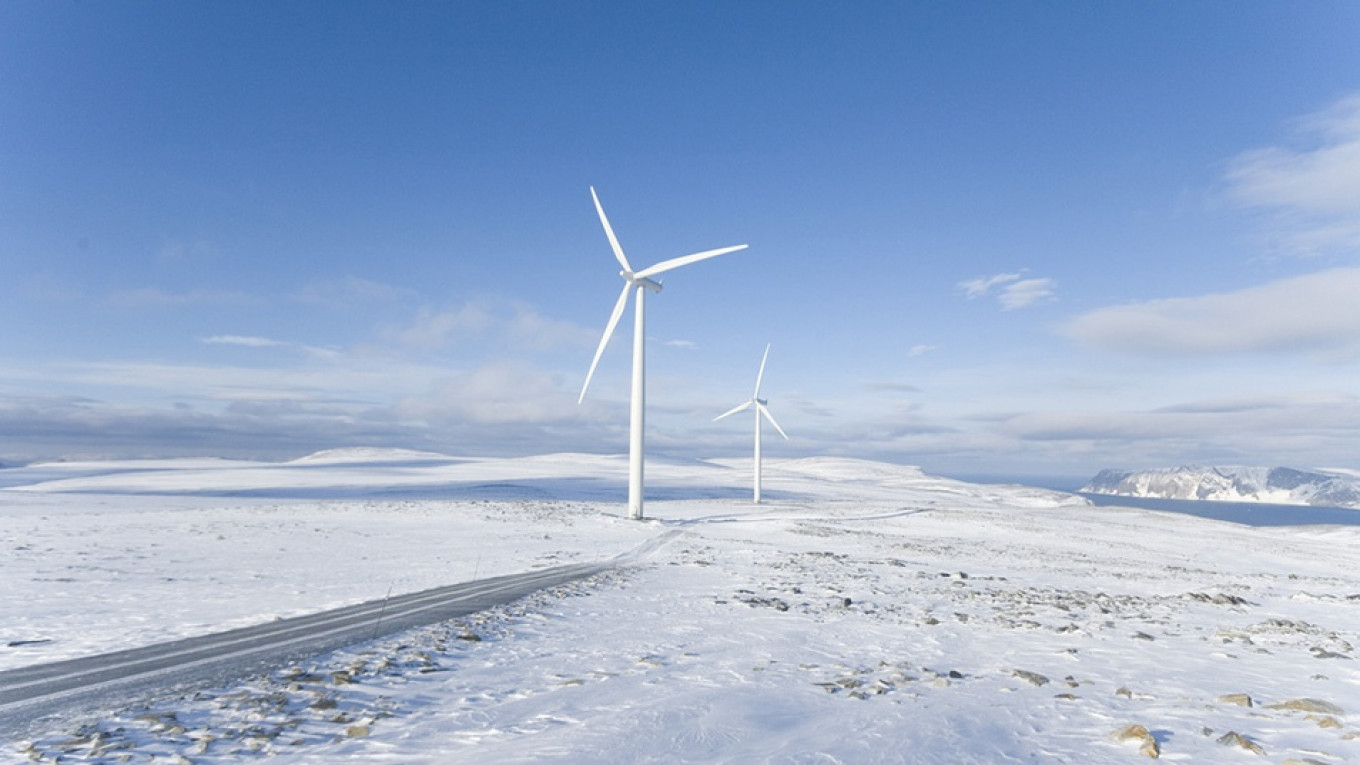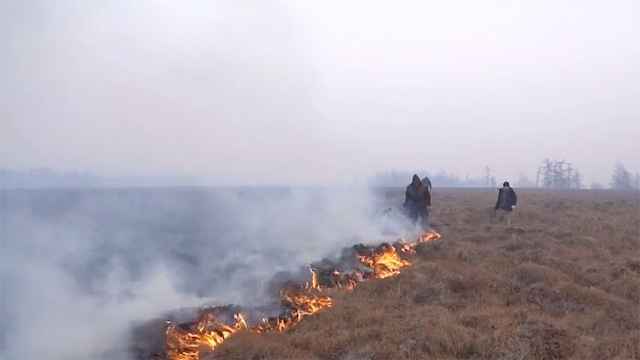A Russian energy company has opened a wind farm in a remote village north of the Arctic Circle to help 4,600 of its residents reduce reliance on expensive diesel generators and fuel deliveries.
Russia’s RusHydro electric company teamed up with Japanese researchers and the administration of Russia’s Far Eastern republic of Sakha last year on an energy management system aimed at stabilizing the remote settlement’s power grid. The “Polar Microgrid System” project’s stated goal is to integrate existing generating facilities with wind turbine generators and storage batteries.
As part of the project, a 900 kilowatt wind power plant was inaugurated in the windy town of Tiksi on Wednesday, RusHydro said in a press release.
The three turbines used in the plant were built by Japan’s Komaihaltec renewable energy company and are able to withstand freezing temperatures of up to minus 50 degrees Celsius and high winds, it said.
The wind farm will help Tiksi residents reduce their reliance on diesel by 500 metric tons a year, RusHydro estimated.
“We expect the equipment will withstand harsh climate conditions and prove its effectiveness,” its general director Nikolai Shulginov said.
Sakha Governor Aisen Nikolayev said the project “would help improve living conditions of Tiksi residents who live in some of the most extreme climate conditions on our planet.”
RusHydro said it plans to start building a 3 megawatt diesel plant to integrate with the wind farm next year for a total capacity of 3.9 megawatts.
In addition to the newly opened wind farm, RusHydro said it operates four wind farms in remote Siberian and Far East locations with a combined capacity of almost 2,500 kilowatts.
A Message from The Moscow Times:
Dear readers,
We are facing unprecedented challenges. Russia's Prosecutor General's Office has designated The Moscow Times as an "undesirable" organization, criminalizing our work and putting our staff at risk of prosecution. This follows our earlier unjust labeling as a "foreign agent."
These actions are direct attempts to silence independent journalism in Russia. The authorities claim our work "discredits the decisions of the Russian leadership." We see things differently: we strive to provide accurate, unbiased reporting on Russia.
We, the journalists of The Moscow Times, refuse to be silenced. But to continue our work, we need your help.
Your support, no matter how small, makes a world of difference. If you can, please support us monthly starting from just $2. It's quick to set up, and every contribution makes a significant impact.
By supporting The Moscow Times, you're defending open, independent journalism in the face of repression. Thank you for standing with us.
Remind me later.






